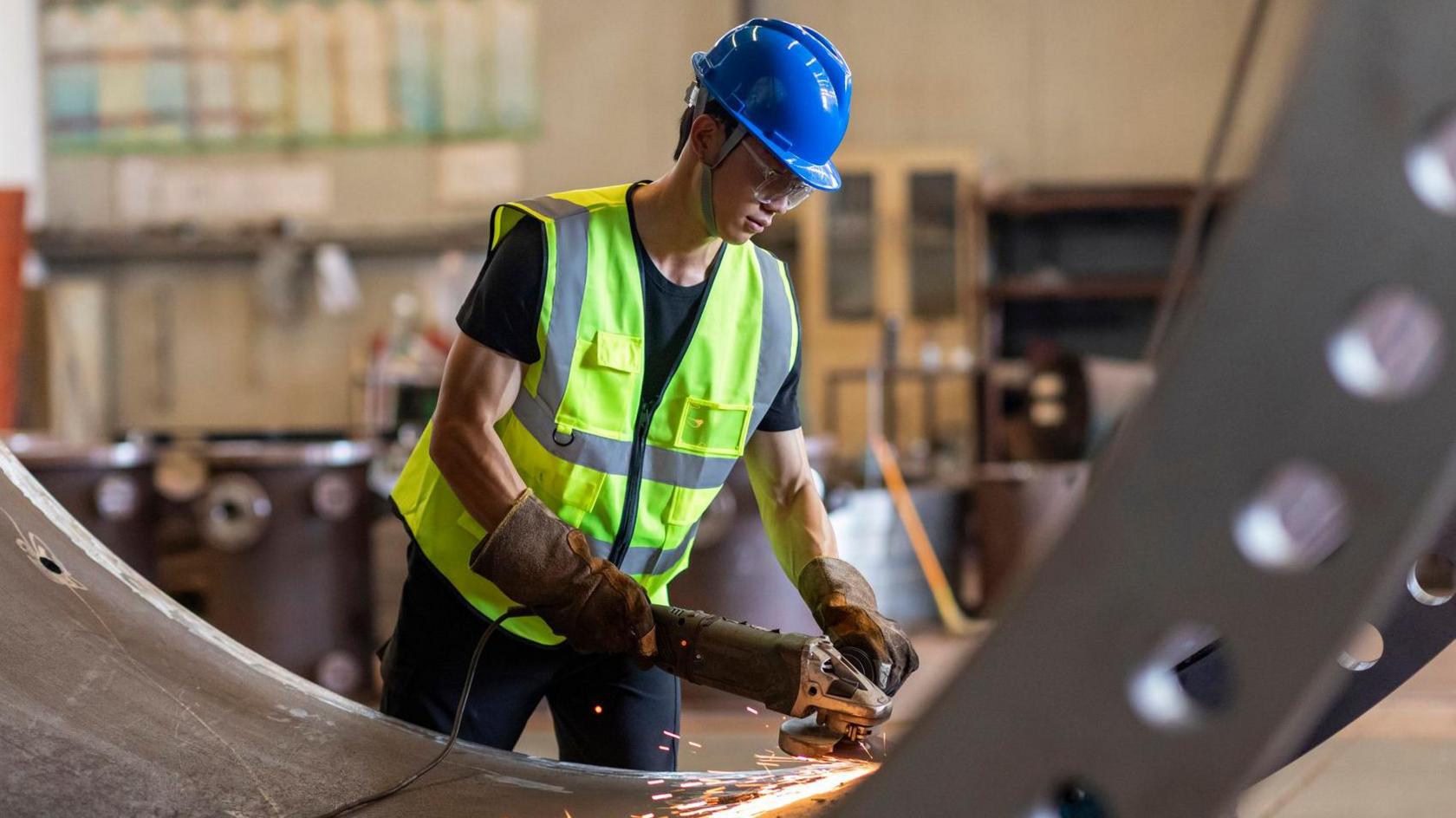UK hopes for 0% tariff on steel exports to US dashed

- Published
A proposed deal to eliminate tariffs on UK steel exports to the US has been put on hold indefinitely, the BBC understands.
Tariffs of 25% are currently applied to steel exports to the US, which make up 6% of all UK steel exports by volume and 9% by value.
Other countries face tariffs of 50% and so senior government sources insist that the UK is in a competitive position relative to others.
But hopes remain for a better deal, after President Donald Trump hinted at tariff relief for British steel ahead of his second state visit to the UK.
Gareth Stace, the director of UK Steel, said on Wednesday that the industry was "disappointed".
"On 8 May, we were given this tantalising glimpse that we might get a tariff-free quota," he told the BBC's Today programme.
The UK and US signed a trade deal in June that reduced tariffs on car and aerospace imports to the US, but failed to agree on terms for British steel, leaving tariffs on it at 25%.
Mr Stace said despite the efforts of the UK government, "it's not within their gift, it's within the gift of the US administration".
Mr Stace said there were hopes that Trump's visit could lead to a better deal, and added: "25% on unlimited exports might be better than a very restrictive tariff-free quota but paying 50% for everything else".
Speaking to reporters as he boarded Air Force One, Trump said he is "into helping" Britain on fine-tuning the UK-US trade deal.
"They want to see if they can refine the trade deal a little bit," he said
"We've made a deal, and it's a great deal, and I'm into helping them.
"They'd like to see if they could get a little bit better deal. So, we'll talk to them."
His comments will be welcomed by Peter Kyle, the new business secretary, who said that tariff relief for British steel is being negotiated.
Senior government sources insist there "remains a path to zero".
Ministers favour merging all UK steel companies into one
- Published3 September
UK-US tariff deal begins but still no news on steel
- Published30 June
Over the weekend, Liam Byrne, the Labour chair of the Commons Business and Trade Committee, said the state visit is "no mere pageant" and warned the government that "we can't escape the truth that Britain now trades with its biggest partner on terms that are worse than the past".
An agreement to reduce the tariffs to zero in short order was welcomed with some fanfare at the time by the government and the industry in July.
At the time the 25% tariff was first imposed, steel executives described the move as "devastating".
However, industry sources told the BBC on Tuesday that while the news was disappointing, the UK still enjoyed a comparative advantage over other producers who face 50%.
One added that it at least gave the industry some certainty in a world where a surplus of cheap steel was causing many countries to erect trade barriers to protect their domestic industry.
One UK steel producer told the BBC they were "furious" about the situation.
The company, which has US customers and saw opportunities to increase exports to the country, said it would now struggle to compete with a price advantage over American steel producers.
A government spokesperson said: "We are continuing to work closely with the US to deliver certainty for UK industry, protect skilled jobs and support economic growth as part of our Plan for Change."
"We are still the only country to benefit from a 25% tariff on steel exports to the US, reinforcing our position as a trusted source of high-quality steel."
Andrew Griffith, the shadow business and trade secretary, criticised Prime Minister Keir Starmer over the development.
"The Prime Minister claimed credit for negotiating steel tariffs to zero," he said.
Hopes of a hasty deal to remove tariffs completely hit snags as US officials raised questions about the exports from the UK's largest steel maker Tata, which has shut down its blast furnaces - meaning that steel is not made from scratch in the UK - pending the completion of new Electric Arc furnaces due to be completed in 2027.
The steel industry in the UK is in considerable financial distress. The government has taken over running Chinese-owned plants in Scunthorpe while Liberty Steel plants in Rotherham and Stocksbridge collapsed into government control last month.